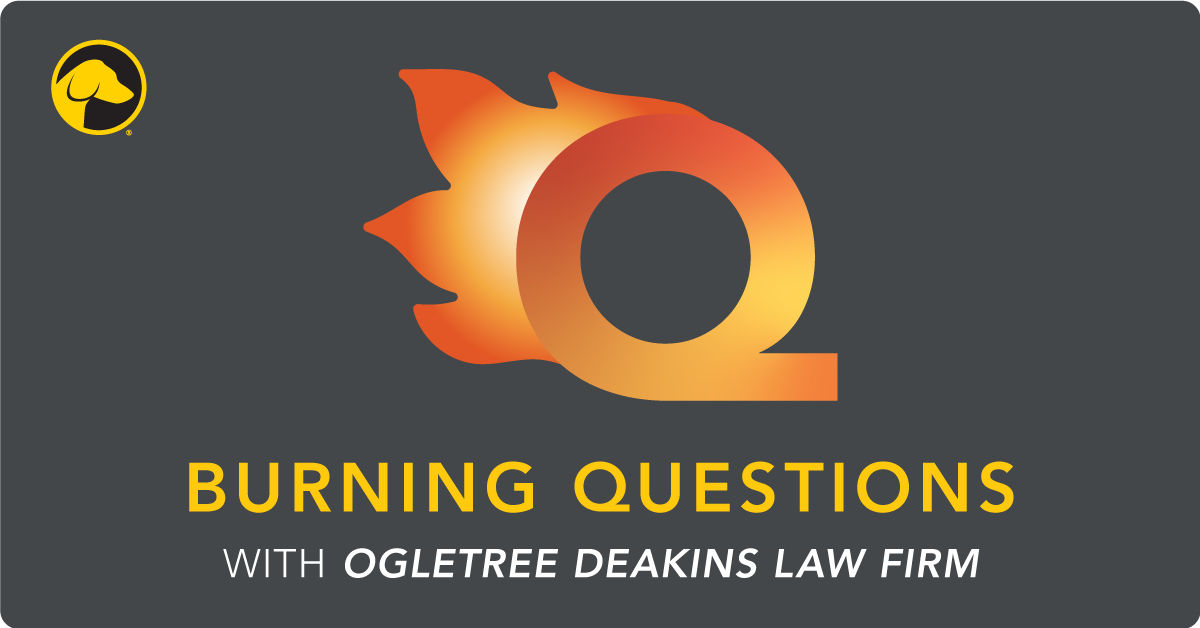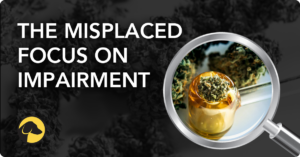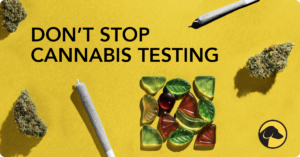
Burning Questions: Cannabis in the Workplace
Many employers find themselves stuck in the weeds as they work to navigate cannabis in the workplace now that state legalization efforts are sweeping the country. Companies are asking: Should we have different sets of rules for medical marijuana cardholders versus recreational users? Should we test for cannabis at all? How do we keep our workplaces safe?
Unfortunately for employers, the issue of cannabis in the workplace is one of their most convoluted and far-reaching challenges. However, the good news is that while the issue is complicated and difficult to manage, employers may have more flexibility than they think, depending on the unique circumstances of their business.
As of February 2023, medical cannabis is legal in 38 states and the District of Columbia.1 Many of the laws in these states contain explicit anti-discrimination provisions2 (i.e., the medical marijuana law itself prohibits taking adverse employment action based on medical marijuana cardholder status). Additionally, recreational cannabis is currently legal in 21 states and the District of Columbia,3 with some states including anti-discrimination provisions for recreational users. Further complicating the issue is the rise in indirect protections for cannabis users through “lawful off-duty conduct” laws (i.e., state laws prohibiting employers from taking adverse employment action based on an individual’s otherwise lawful activity occurring outside of work).
Notwithstanding the complicated buffet of employment-based legal claims and risks, employers can still prohibit employees from possessing, using, or being under the influence of cannabis in the workplace – even in states with direct or indirect protections for cannabis users. While this concept may sound simple, it poses its own set of challenges related to detecting cannabis use on the job.
Traditional drug tests do not measure for “impairment” but instead only show if cannabis is in someone’s system. A positive cannabis test cannot indicate whether a person is under the influence of cannabis. Generally, the effects of cannabis only last for a few hours. However, tetrahydrocannabinol (THC), the principal psychoactive compound found in cannabis, can remain in an individual’s system for days, weeks, or months, depending on usage. In other words, an employee can test positive for cannabis long after its effect has worn off, leaving an employer to question what it can do with a positive cannabis test result.
Understandably, employers are incredibly confused about how to confront cannabis in the workplace. Every day at Ogletree Deakins, we speak to clients who are wrestling with these complexities – working to balance legal risks with operational preferences, all while prioritizing workplace safety and addressing recruiting and retention challenges.
Clients pose dozens of questions on this topic, but below are some we see most often.
WE JUST RECEIVED A POSITIVE TEST RESULT FOR CANNABIS, AND OUR EMPLOYEE SAYS SHE’S A MEDICAL CARDHOLDER. WHAT NOW?
First and foremost, ask for a copy of the card. Employers have much more flexibility with recreational cannabis users than with medical cardholders. So, employers should always confirm that an individual is being truthful and ask for a copy of a medical marijuana card. This is neither a HIPAA violation, nor impinging upon someone’s medical privacy interests.
Assuming that an individual is a medical cannabis cardholder, employers should then run through a checklist of questions:
- What is the state of employment?
- What type of job is at issue, safety-sensitive or non-safety-sensitive?
- Depending on the answers to 1 and 2, what are the legal risks associated with taking adverse action against the individual?
- What does the company “want” to do?
Evaluating this checklist will help employers establish a risk profile for each specific situation and determine a course of action that could go in countless directions. Assuming an employer wants to take action against the individual, a best practice in handling medical cardholders is to engage in a disability accommodation process with the individual.
Many outcomes can arise from the accommodation process, but employers would be well-suited to engage in this process with medical cardholders. Remembering the accommodation process can play out in many ways; employers should approach the process with an open mind, just as with any other disability accommodation issue.
WE JUST RECEIVED A POSITIVE TEST RESULT FOR CANNABIS. THE APPLICANT SAYS ADULT USE OF RECREATIONAL CANNABIS IS LEGAL IN OUR STATE. WHAT NOW?
Employers have greater flexibility in taking adverse action against recreational cannabis users than medical cardholders. A small number of states maintain recreational laws that contain express protections (i.e., within the recreational marijuana law itself) for recreational users. A few states have indirect employee protections for recreational cannabis where an employer cannot take adverse action against an employee or applicant for off-duty, off-premises use of cannabis. However, for now, employers have fewer state laws to navigate in handling recreational users than medical cardholders. As a result, employers will likely face a different and, in most cases, lower risk profile when dealing with recreational users than with medical cardholders.
WE ARE STRUGGLING TO FIND ENOUGH QUALIFIED APPLICANTS WHO CAN PASS A THC TEST. HOW CAN WE CONTINUE CANNABIS TESTING?
Consider this: In the combined U.S. workforce urine tests, the percentage of working Americans testing positive for drugs hit a two-decade high (4.6%) last year, driven by an increase in positive marijuana tests.4
However, in what should be refreshing news for employers, the answer to this question is largely a business decision first and a legal issue second.
The question remains – how can employers implement testing to protect both themselves and their employees who use cannabis legally outside of work? Traditional sample types such as oral fluid and urine have windows of detection that can last days or weeks after use. Businesses can’t afford to risk lawsuits, production downtime, and the costs of replacing employees who were terminated because they failed to pass a traditional cannabis drug test. The answer for companies in the era of cannabis legalization may be a test for recent cannabis use, which serves as the best measure to determine if an employee’s use and corresponding test results comply with company workday policies.
To be blunt, cannabis testing can present challenges. Ultimately, employers should make testing decisions based on business and operational-centric considerations.
WHAT SHOULD EMPLOYERS DO NEXT
In conclusion, employers are struggling – and will continue to struggle – with the many challenges that come with cannabis and the workplace. As more states legalize cannabis, amend existing legalization laws, and as courts continue to rule on marijuana-based employment lawsuits, employers must adapt to the changing landscape of these laws and legal risks. While not an insurmountable task, it is one that requires careful consideration
This article does not consider federal employees or employees subject to federal regulations, such as DOT-regulated employees.
About the Authors

Tae Phillips
Tae Phillips is a national subject matter expert on workplace marijuana and drug testing issues. He regularly assists clients nationwide in handling the rapidly evolving landscape of medical and recreational cannabis legalization laws and their impact on employers. In addition to providing practical advice and counsel, Tae has also handled high-profile litigation involving these difficult issues.
Melanie Cormier
Melanie Cormier is a part of Ogletree Deakins’ Drug Testing Practice Group and advises employers on best practices for dealing with drug testing laws and developing policies and procedures. Melanie also represents employers in other areas of employment litigation in Massachusetts and New Hampshire, including wage and hour and discrimination claims.


March 2, 2023
By TAE PHILLIPS + MELANIE CORMIER
Ogletree Deakins
Share












